There is a scene in Mr. Jealousy where a group of friends attends a screening of an unnamed “American independent film” and talks it over afterward; “not one of his better ones” is their blithely dismissive consensus. The temptation to guess which filmmaker Noah Baumbach is secretly dissing with this inside joke is considerable, especially considering that Mr. Jealousy was made when the writer-director was all of 27 years old. Depending on your guess, he could be poking a past-his-prime elder or else mocking one of his contemporaries in the ’90s indie boom—hey jealousy, indeed.
One reason Baumbach isn’t typically lumped in with the superstars of the New New Hollywood—i.e., Paul Thomas Anderson, Sofia Coppola, David Fincher—is that his movies are New York all the way; another is that both in terms of on-screen representation and public reception, his work has mostly stayed safely inside an East Coast bubble.
Comfort zones are central to Baumbach’s filmography in a number of ways. Typically, his upper-middle-class protagonists are either worried about moving beyond their familiarly gentrified environments or else suspicious they’ve grown too cozy; at the same time, Baumbach’s often scathing sensibility works to redistrict (and at times, fully contaminate) his audience’s comfort zone with regard to the depiction of interpersonal cruelty. If one common denominator of the post-Tarantino indie film has been the integration of show-stopping violence into otherwise quirky, small-scale narratives, Baumbach’s intervention has been to transpose literal brutality into verbal assaults. If there’s a 21st-century American movie with more bruising dialogue than The Squid and the Whale, I don’t know it.
The combination of economically advantaged characters and a free-floating nastiness has led some—most notably the legendarily vituperative Armond White—to classify Baumbach as a privileged whiner, but his movies are so keenly self-aware on this point that it hardly qualifies as criticism to say so. The streak of autobiography that runs through Baumbach’s work almost requires an annotated bibliography to keep the references straight—that is, provided that the intersection of personal life and art-making matters to you. It definitely matters to Baumbach, whose movies are filled with creators using the raw materials of their romantic and family entanglements to sculpt alternate narratives and realities, and who are often punished for it—but also just as often celebrated.
Beyond his knack for writing lines that stick in your craw for years—“I made burgers that time you had pneumonia”—Baumbach’s queasy balance of contempt and identification for the people in his stories generates showcases for some extraordinary performances: Jeff Daniels in The Squid and the Whale; Greta Gerwig in Frances Ha (a film she coauthored); Adam Driver and Scarlett Johansson in Marriage Story. The latter is probably Baumbach’s strongest awards-season contender since the Oscar-nominated The Squid and the Whale and plays in part like a greatest hits of his previous movies: It’s about talented, neurotic New York artists staring down the barrel of divorce and unloading on one another at regular intervals.
It’s also one of his better ones, and yet choosing between Baumbach’s movies is weirdly difficult because of their surface similarities and underlying consistency of tone and perspective. He doesn’t have a lot of curveballs in his arsenal, which means that he rarely surprises, but he’s also rarely too far off the mark.
11. Margot at the Wedding (2007)
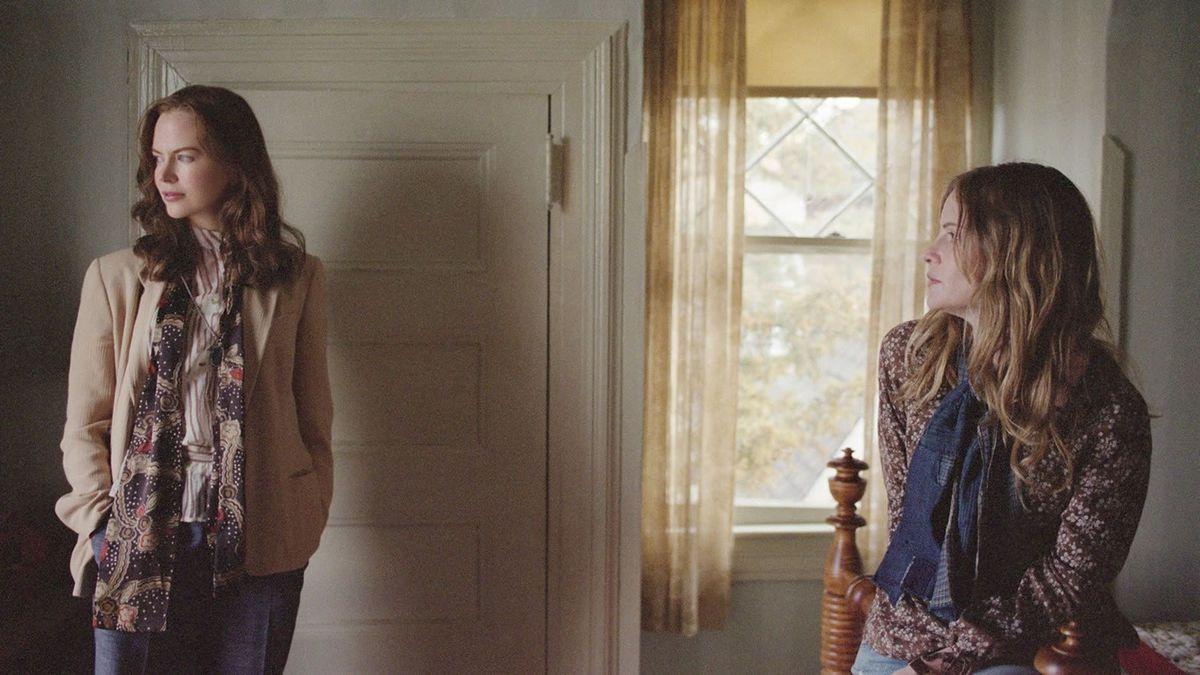
As an emotional terrorist determined to destroy her sister’s nuptials, Nicole Kidman really goes for it in Margot at the Wedding; Baumbach’s scabrous comedy fit nicely into her mid-2000s run of playing against type. What’s off here is not the acting—with Jennifer Jason Leigh characteristically great as bride-to-be Pauline—but the berserk cruelty of the material, which at a certain point takes leave of reality and enters a grimly stylized realm without an escape hatch. Harris Savides’s purposefully scratchy cinematography suggests a faded family album, a technical touch that doesn’t quite redeem a movie whose sheer, unmediated unpleasantness turns its creator’s strengths into liabilities.
10. Mistress America (2015)
Or: Frances Ha II, with Gerwig reprising her chaotic charm as a slightly older and more prosperous New York City screwball. In terms of character study, the film belongs more to college freshman Tracy (Lola Kirke), who eagerly styles herself as the apprentice to Gerwig’s whirlwind weirdo Brooke, only to grow skeptical and use her new mentor as short story fodder. The cautionary critique of turning relationships into art is effective—and resonant in light of Baumbach’s often autobiographical approach—and yet the sweet spontaneity of Frances Ha is replaced by something more mechanical. The awkwardness is there, but not the grace.
9. While We’re Young (2014)
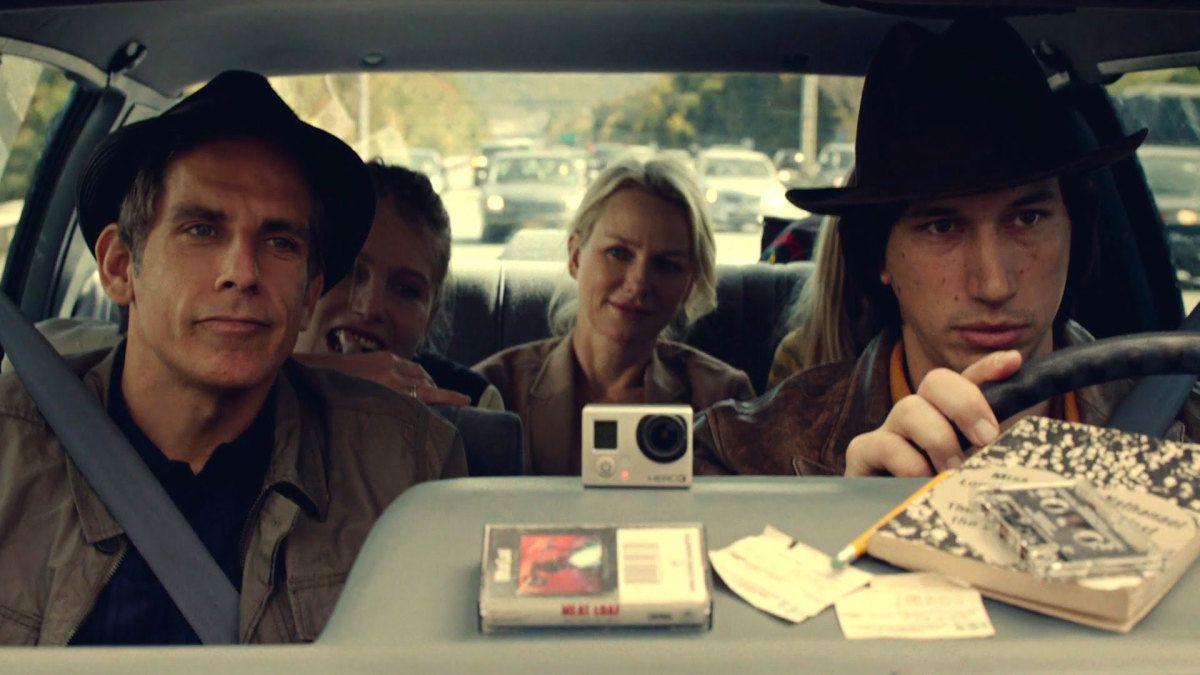
Middle-aged professionals Ben Stiller and Naomi Watts are reenergized when they become friends with postgraduate hipsters Adam Driver and Amanda Seyfried; coffee shop double dates and hip-hop dance classes ensue. The Olds want to recapture their youth but the kids aren’t all right, and, inevitably, the romantic vertices between the two couples get rearranged—it’s identity crisis for all. Stiller re-evokes Roger Greenberg while playing a documentary filmmaker who brandishes his ethical code like a shield against the dismal tide (i.e., the up-and-comers represented by Driver’s digital-camera slinger) and the scenes dealing with nonfiction filmmaking practice are as sharp and precise as the Brooklynite-lifestyle satire is (by this point) familiar and by the numbers.
8. De Palma (2015)
Codirected with Jake Paltrow, De Palma has an irresistible hook: an extended encounter with the nastiest, most brilliant American director of the past 50 years, moving through his filmography title by title without interjection or challenge from his interlocutors. On one level, Baumbach’s self-effacement is understandable and admirable: It’s Brian De Palma’s film, and he and Paltrow are there to facilitate his observations. But there are so many links that can be drawn between the films and their various moments and contexts—things De Palma won’t say himself—that, considering Baumbach’s obvious knowledge of movie history and aesthetics, it’s almost a shame that he didn’t attempt something more essayistic. The result of his deference is something that’s weirdly indispensable and throwaway, all at once.
7. The Meyerowitz Stories (New and Selected) (2017)
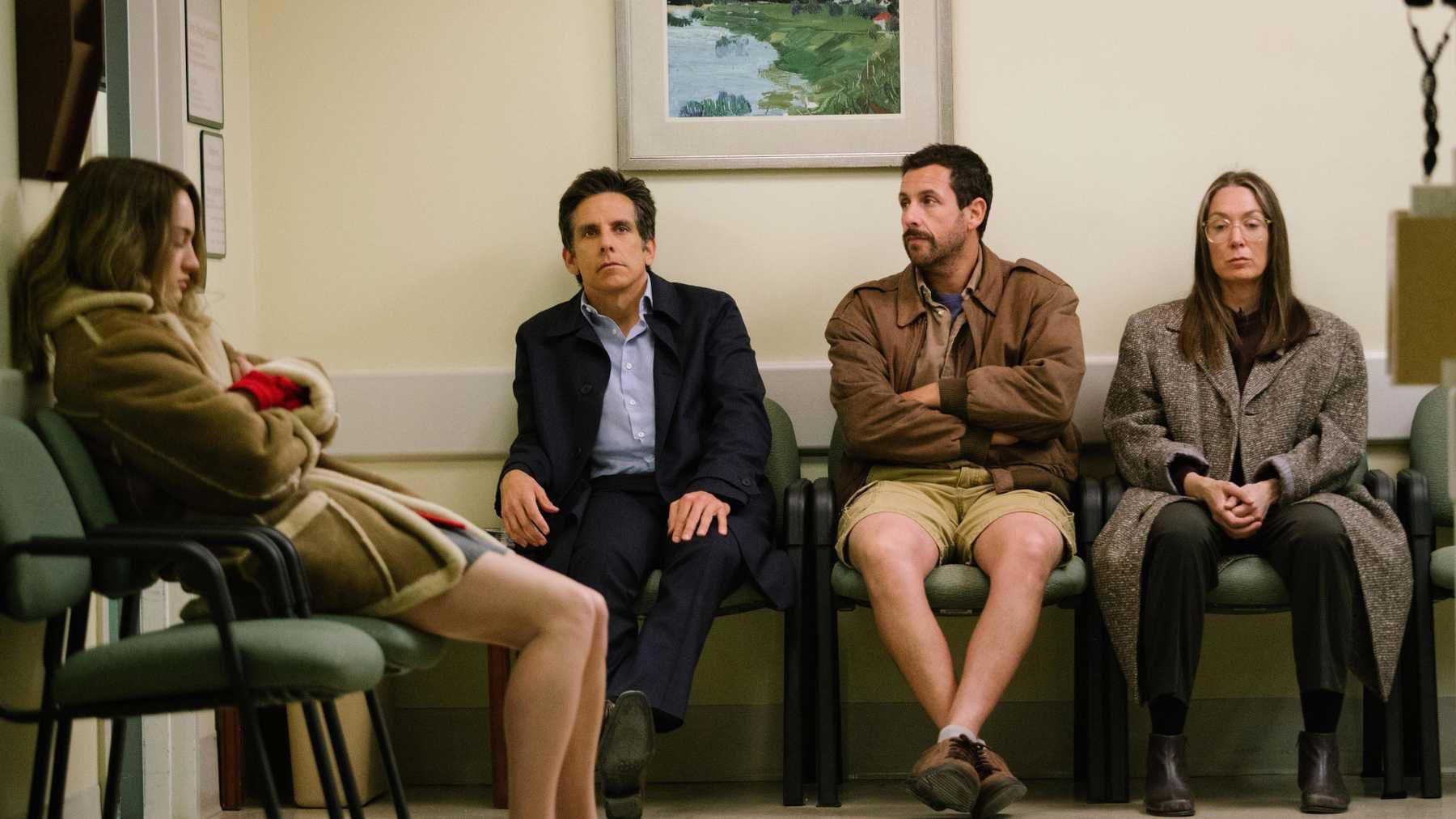
The first 10 minutes, in which Adam Sandler’s wayward Danny Meyerowitz tries to find a parking spot in New York and picks out a tune on the piano with his daughter rank among Baumbach’s warmest and funniest sequences (and Sandler, as if we didn’t know by now, is really a great seriocomic actor). The rest of The Meyerowitz Stories more or less rehashes dysfunctional adult sibling dynamics already sculpted into quasimythological perfection by Baumbach’s pal Wes Anderson in The Royal Tenenbaums, with Dustin Hoffman’s narcissistic patriarch failing to match the pathos (or hilarity) of Gene Hackman. The entitled jerkery is standard issue, while certain gags around the edges are more cartoony than usual, including the sexually provocative short films made by Danny’s intellectually ambitious daughter, Eliza (Grace Van Patten), and a knock-down fight between Stiller and Sandler that literalizes the idea of sibling rivalry as beta-male slapstick.
6. Greenberg (2010)
Ben Stiller’s dyspeptic ex-rock musician is pretty tough to take. Arriving in Los Angeles to house-sit for his more prosperous brother, he tells anyone who will listen that he’s ready to do nothing, as if his going off the grid is of interest to anybody but himself. Greenberg ably replicates the experience of being stuck at a party with a self-righteous blowhard, but it also tries to fully humanize its namesake. The tension between Baumbach’s gifts for the discomfiting comedy of awkwardness and Ben Stiller’s movie-star instincts is fascinating—he tries to bury redemptive notes in the performance when maybe he shouldn’t. The most outstanding element is LCD Soundsystem frontman James Murphy’s atypically subdued musical score, which gives the film the richly melancholic atmosphere it requires.
5. Kicking and Screaming (1995)
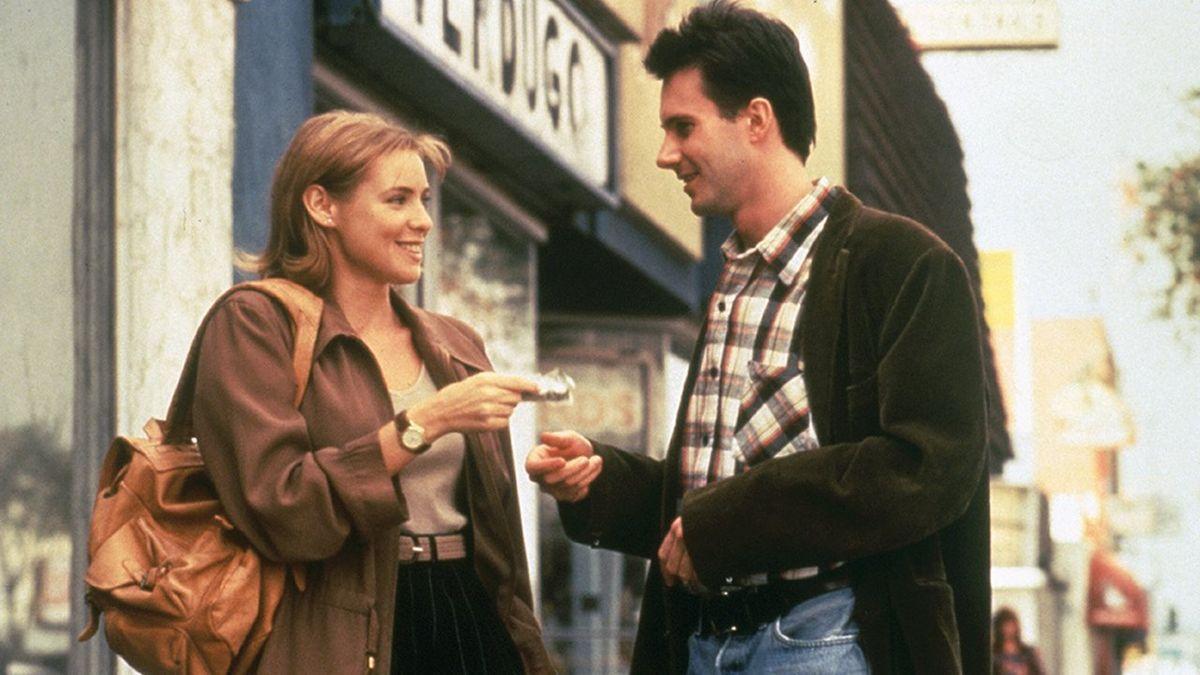
Written and directed when Baumbach was 25, Kicking and Screaming vibrates with anxiety about adulthood. Its characters are collegiate Peter Pans doing their best to delay the process of growing up. (The title’s implication of infanthood is subtle and clever.) Their romantic and intellectual flailing is chronicled with an assurance that feels borrowed from a host of filmic and literary sources but is no less real for it; Baumbach’s feeling for characters who confuse being intelligent with actual smarts is undeniable, and the dialogue is terrific: “I’m nostalgic for conversations I had yesterday. … I’ve begun reminiscing events before they even occur.”
4. The Squid and the Whale (2005)
“It’s very Kafkaesque.”
“That’s because it was written by Franz Kafka.”
On a strictly one-liner-for-one-liner basis, Baumbach’s stringently vicious, purportedly autobiographical account of a literary household splintered into factions by the parents’ acrimonious divorce might be his funniest script (and the titular museum display of ocean monsters in combat is probably his most elegant metaphor). As an arrogant novelist playing his two teenage sons against their mother, Jeff Daniels is so impressively embittered that his usual hangdog appeal evaporates. He evinces the crippling, despicable self-pity of a man who believes being cheated on entitles him to antagonize and manipulate everybody around him—and who seems almost pleased when his older son (Jesse Eisenberg) starts acting like a chip off the old block. Bonus points for addressing the perennial question of Baumbach’s postmodern “thefts” from older movies by having Eisenberg’s character perform a Pink Floyd song while claiming he wrote it; the joke is that nobody his age can tell the difference.
3. Mr. Jealousy (1997)
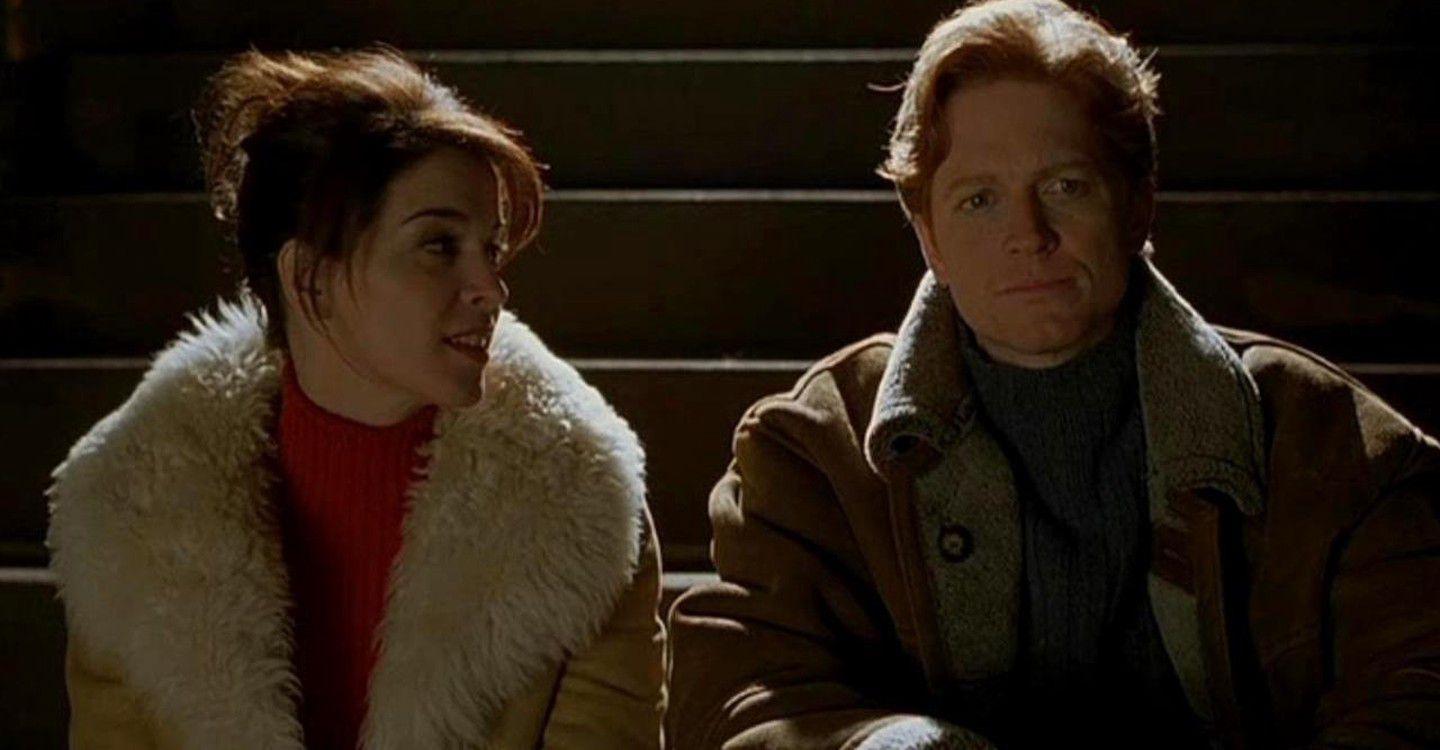
Two years before The Sopranos, Baumbach roped in Peter Bogdanovich to play a psychiatrist with the unlikely name of Dr. Poke in his sophomore feature—a cameo connecting the young director to the glory days of the 1970s New Hollywood. Movie references abound in Mr. Jealousy: The characters go to revival screenings of John Ford films, and the soundtrack quotes François Truffaut (in addition to vintage music by George Delerue, the narration, delivered by Baumbach himself, nods to Two English Girls). These lofty allusions hover comfortably above a story about culture vultures and in-crowd wannabes. Aspiring novelist Lester (Eric Stoltz) joins a group therapy session to spy on his girlfriend’s (Annabella Sciorra) bestselling ex (Chris Eigeman), sparking a circle jerk of skepticism and envy written, directed, and acted at a perfect screwball velocity that Baumbach’s been chasing ever since.
2. Frances Ha (2012)
A superb dual showcase for star and cowriter Gerwig, Frances Ha is a character study about somebody who stubbornly refuses to come into focus: running, dancing, or even just standing still, its eponymous heroine is a nervy blur. What makes the perpetually flustered, aimlessly couch-surfing Frances, always on the verge of either collapse or a breakthrough, endearing rather than annoying is largely a matter of Gerwig’s charisma—she pulls you inside the character’s aspirations to have aspiration, and lets her gawky yet scrupulously controlled physicality do the rest. Baumbach directs with a light touch, shooting in Manhattan-style monochromatic black and white to take the edge off the idea that Frances is some kind of millennial avatar. Instead, her delayed-coming-of-age has a sense of something timeless.
1. Marriage Story (2019)

There are things to be suspicious of in Baumbach’s latest movie: the extent to which its his-and-hers narrative emotionally shortchanges Scarlett Johansson’s aspiring actress in favor of Adam Driver’s “genius” stage director as they enter into a bitter custody battle over their young son; the extent to which the story takes liberties with Baumbach’s well-publicized personal life while drawing inspiration and resonance from it; the extent to which, 25 years into his career, we’ve seen this all before. And yet Marriage Story is affecting and powerful because, more than any of Baumbach’s other dramas, it draws a plausible equation between hate and love—i.e., that true hatefulness can be a byproduct of love, and that the desire to hurt another person is often an admission of self-disgust. The world on screen here is almost identical to the one in other Baumbach movies, and yet parts of the film feel real in a way that he’s only rarely approached—a testament to the actors as well as the inherent emotional potency of the material. A pair of late scenes featuring characters doing sing-alongs to Stephen Sondheim’s Company get at the theme of art-imitates-life-imitates-art more devastatingly than the director’s usual allusions—they capture something ineffably wonderful and sad about being alive.
Adam Nayman is a film critic, teacher, and author based in Toronto; his book The Coen Brothers: This Book Really Ties the Films Together is available now from Abrams.